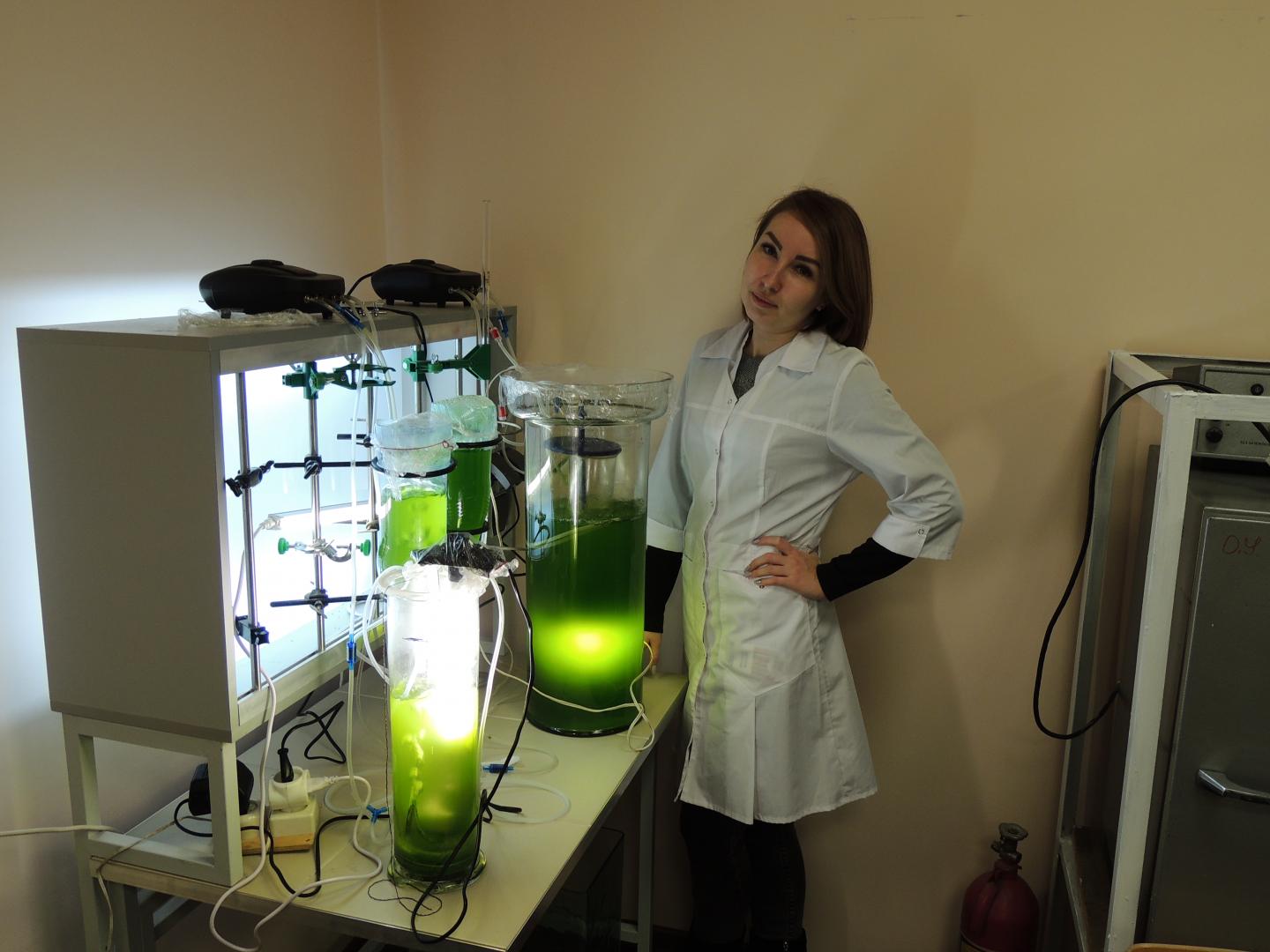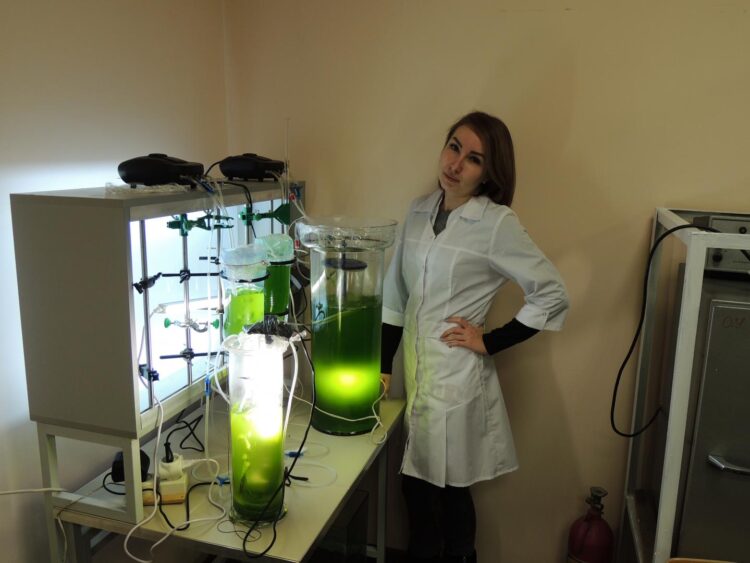Researchers obtained microalgae biomass with a high content of carotenoid pigments, which is suitable for the food industry through targeted cultivation

Credit: Peter the Great St.Petersburg Polytechnic University
In the framework of the Chlorella microalgae cultivation process, the researchers from Peter the Great St.Petersburg Polytechnic University (SPbPU) obtained microalgae biomass with a high content of carotenoid pigments, which is suitable for the food industry. The research results were published Nov. 2020 in the scientific journal “Agronomy Research“.
The deterioration of the ecological status of urban areas and the industrialization of the food industry requires the additional enrichment of the diet with biologically valuable food substances. Such pigments as carotenoids, from which vitamin A is synthesized in the body, are essential for human health. However, it is difficult to obtain the carotenoids from natural sources, because it is destroyed due to the irradiation sources, high temperatures, and high acidity of the environment. Therefore it is necessary to develop technologies for its targeted delivery to the cells.
“The obtained biomass with a high level of carotenoids can be used in various sectors of the food and pharmaceutical industries as a dietary supplement to reduce the vitamin A deficiency for children and adults living in regions with increased environmental stress. Also to prevent the risk of oncological diseases, “notes Yulia Bazarnova, Director of the Higher School of Biotechnology and Food Technologies at the Institute of Biomedical Systems and Biotechnology SPbPU.
Scientists of Polytechnic University developed the consistency of the nutrient substratum, conditions of illumination of the cell suspension of microalgae, selected the methods of concentration and dehydration of the obtained biomass, to intensify the biosynthesis of carotenoids.
Besides, the researchers are developing microencapsulated forms of carotenoids for targeted delivery to various organs and tissues. Microencapsulated carotenoids are particles composed of a core (Chlorella microalgae carotenoid extract) shell (biodegradable material). Scientists are currently negotiating with the leading Russian bottled vegetable oil manufacturer about the implementation of the new technology in the nutrition industry.
“Biological and nutrition technologies are one of the key scientific areas of the 21st century. Scientists all around the world are working to improve and preserve human health. The projects of the Higher School of Biotechnology and Food Technologies SPbPU are very important and promising. The scientific developments in this area leads to the gradual improvement in the quality of life, “says Vitaliy Sergeev, Vice-rector for research SPbPU.
###
Media Contact
Raisa Bestugina
[email protected]
Related Journal Article
http://dx.





